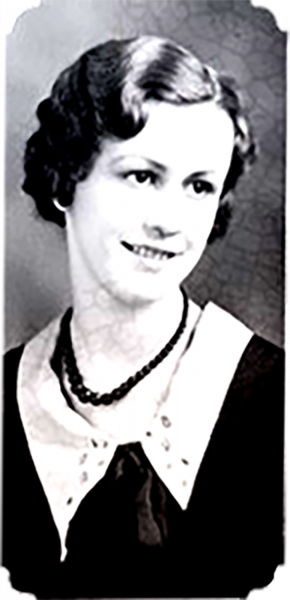
As we might expect, the World War II era changed life at Colorado State College of Agricultural and Mechanical Arts (CSC). The newly formed English department, however, (excuse the pun) soldiered on.
Before the US even entered the war, classes were canceled on October 16, 1940 to allow all men on campus aged 21-35 to register for the Selective Service in the nation’s first peacetime draft. When war was declared in 1941 after the attack on Pearl Harbor by Japanese forces, both students and professors left to serve in the armed forces. Civilian enrollments at CSC steadily declined, comprised mostly women, and were exceeded by hundreds of enlisted men attending the Army Clerical School on campus. The Collegian reported that “by September 1943, over 70 percent of the students at Colorado State were soldiers in the Army or the Army Air Force. Of the 2000 at the college, only 570 were civilians and most of them women.”
Among the faculty who served was a new hire in the English department. As the department newsletter Words and Deeds related in a 1977 historical piece:
Martha Trimble, a local young lady of good stock who had distinguished herself as a CSC undergraduate…had completed her master’s degree at Boulder and was hired as an English instructor. But her presence is temporary; she soon accepts a commission in the Navy and goes to teach navigation to the fliers.
Ms. Trimble did indeed return to the department and served it long and well. Among her professional accomplishments in the mid-1970s, for example, were serving as vice-president and then president of Rocky Mountain MLA, publishing a book on N. Scott Momaday, and delivering a speech to the Conference on College Composition and Communication titled “Freshman English Programs: What Should they Try to Do.”
Two faculty publications from 1943 reflect a sense of civic duty to fight fascism and uphold democratic values: department head Alfred Westfall’s “What Speech Teachers May Do to Help Win the War” in the Quarterly Journal of Speech and Lester Stimmel’s Journal of Higher Education piece “A Perhaps Too Open Letter.”
Westfall argues that freedom of speech is essential to democracy and that its preservation requires a “wide and generous training in the art of self-expression.” He extols the value of deliberative discourse in public life and decries a dearth of civic engagement that threatens the nation: “At a time when we should be united, one group is fighting another. Capital and labor still fight each other. People are indifferent.” The remedy, according to Westfall, is education. “Teachers of speech cannot remake the nation,” writes Westfall, “but at least they can influence a part of its youth, particularly that part used to discuss war problems and to arouse civic morale.” His article is replete with specific advice as to how speech teachers have and can carry out this mission.
If the planes overhead and the uniforms on campus were not enough to remind Aggies of the war, they could watch stockade trucks moving prisoners of war during the morning and evening hours. Germans and Italians in fatigue jackets with white PWs painted on them lived in a stockade near Windsor and helped harvest corn and sugar beets north of Fort Collins. Some were young as 14 and 15. Many were from Rommel’s African battalions.
–Words and Deeds, Fall 1977
Stimmel’s article focuses on an internecine “war” fought on the academic front between “education scientists” and the scholars in the disciplines who reject their work. He calls for a rapprochement that might lead to better college teaching as well as some respect for education as an academic field. He offers arguments for why this rift has occurred and suggests how it might be healed, declaring that the stakes are indeed high:
It is in universal sameness of mind that Fascism can best prosper–and you set yourselves up as the defenders of democracy. Averageness is Society’s formaldehyde, its insulation against change; above-averageness is its insurance against sterility and retrogression. Obviously, if everyone is adjusted to fit the social machine, the machine cannot change. We need those who would adjust, not merely themselves to society, but society itself.